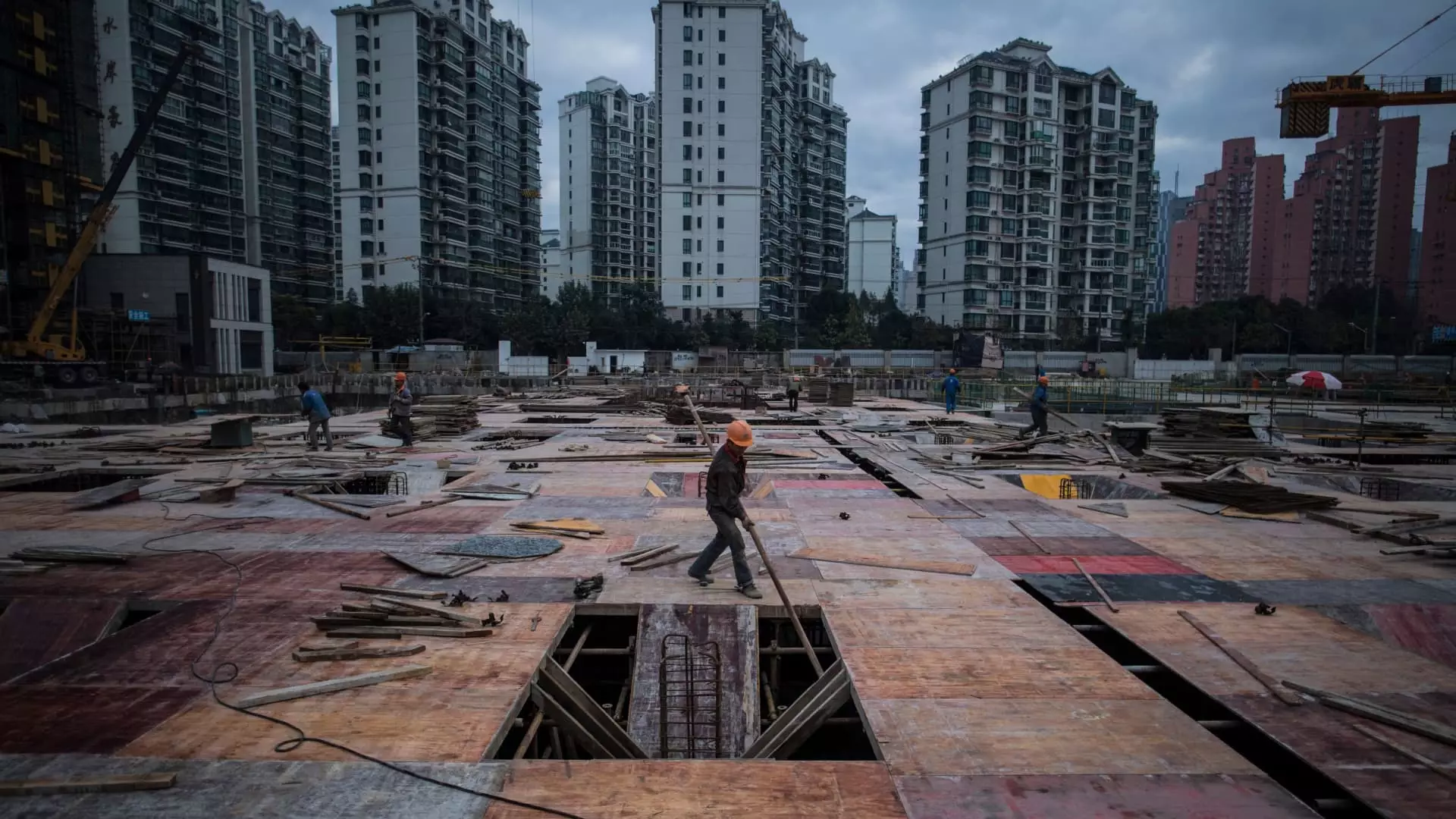The Chinese real estate market, historically a cornerstone of the nation’s economic growth, faces a challenging landscape punctuated by declining transaction volumes and increased regulatory scrutiny. Despite the government’s recent stimulus measures aimed at revitalizing home sales, the response from the market has been, at best, tepid. Analysts argue that while the intervention has led to a momentary boost in buyer sentiment, it lacks the sufficient strength necessary for a meaningful recovery.
The week-long National Day holiday often serves as a barometer for consumer sentiment surrounding significant purchases in China, including real estate. According to a report from the China Index Academy, certain cities experienced a spike in home sales during this period. In Beijing, average daily sales surged by an impressive 81% in terms of floor area from the previous year. This can be seen as a positive indication; however, it is crucial to view this statistic through a wider lens.
In contrast, when observing the broader national landscape, the data reflects a stark reality: the average daily sales across 25 surveyed major cities plummeted by 27%. This decline underscores that while major cities like Beijing may show signs of life, many other regions, particularly tier 1 cities such as Shanghai, Guangzhou, and Shenzhen, recorded decreases between 57% and 61%. The troubling notion is that what appears as isolated progress in sales may only be an outlier performance rather than a signal of an industry-wide rebound.
While some analysts argue that the recent stimulus measures could temporarily bolster buyer confidence, William Wu of Daiwa Capital Markets warns of the limitations of such interventions. He asserts that unless more robust and sustained incentives come into play, any uptick in sales will likely falter in the long run. This sentiment is echoed by Shen Meng from Chanson & Co., who emphasizes the importance of evaluating sales over extended periods to truly assess the effectiveness of government policies.
Historical trends further underscore the precariousness of the current situation. Since 2021, home sales during the Golden Week holiday have been on a consistent downward trajectory. The figures reflect a decrease from a peak of 177,000 square meters sold in 2021 to a meager 107,000 square meters this year. This downward spiral raises alarms over the sustainability of any short-lived sales surges, painting a picture of a sector grappling with persistent malaise rather than emerging revitalization.
One of the critical challenges confronting China’s real estate sector lies in the issue of excess inventory. With numerous cash-strapped developers unable to complete projects and a backlog of unsold properties weighing heavily on the market, experts are calling for more substantial policy changes. Kenneth Ho, chief Asia credit strategist at Goldman Sachs, suggests that the government’s focus should shift toward tackling the burgeoning supply of unsold homes.
Although some easing measures—such as lower mortgage rates, reduced down-payment ratios, and increased purchase quotas—have been introduced, their scope may not be enough to address the depth of the crisis faced by the industry. Experts argue that a coordinated effort to address both excess inventory and the financial instability of developers is crucial for any long-term recovery.
As China’s real estate sector grapples with the effects of economic contraction and regulatory pressures, the most recent stimulus measures, while potentially beneficial in the short term, are insufficiently robust to catalyze genuine recovery. The disparity in home sales across cities indicates an uneven recovery landscape, implying that policymakers must carefully navigate the complex fabric of local markets.
Continued oversight and strategic interventions will be essential to not just stabilize but reinvigorate a sector that is fundamental to overall economic health. As the situation evolves, the ability of the government to respond to the needs of the market will determine the trajectory of one of the largest property industries in the world.


Leave a Reply